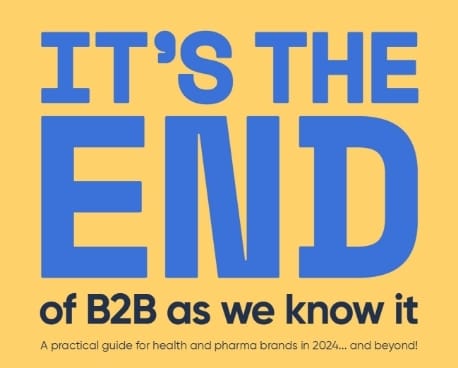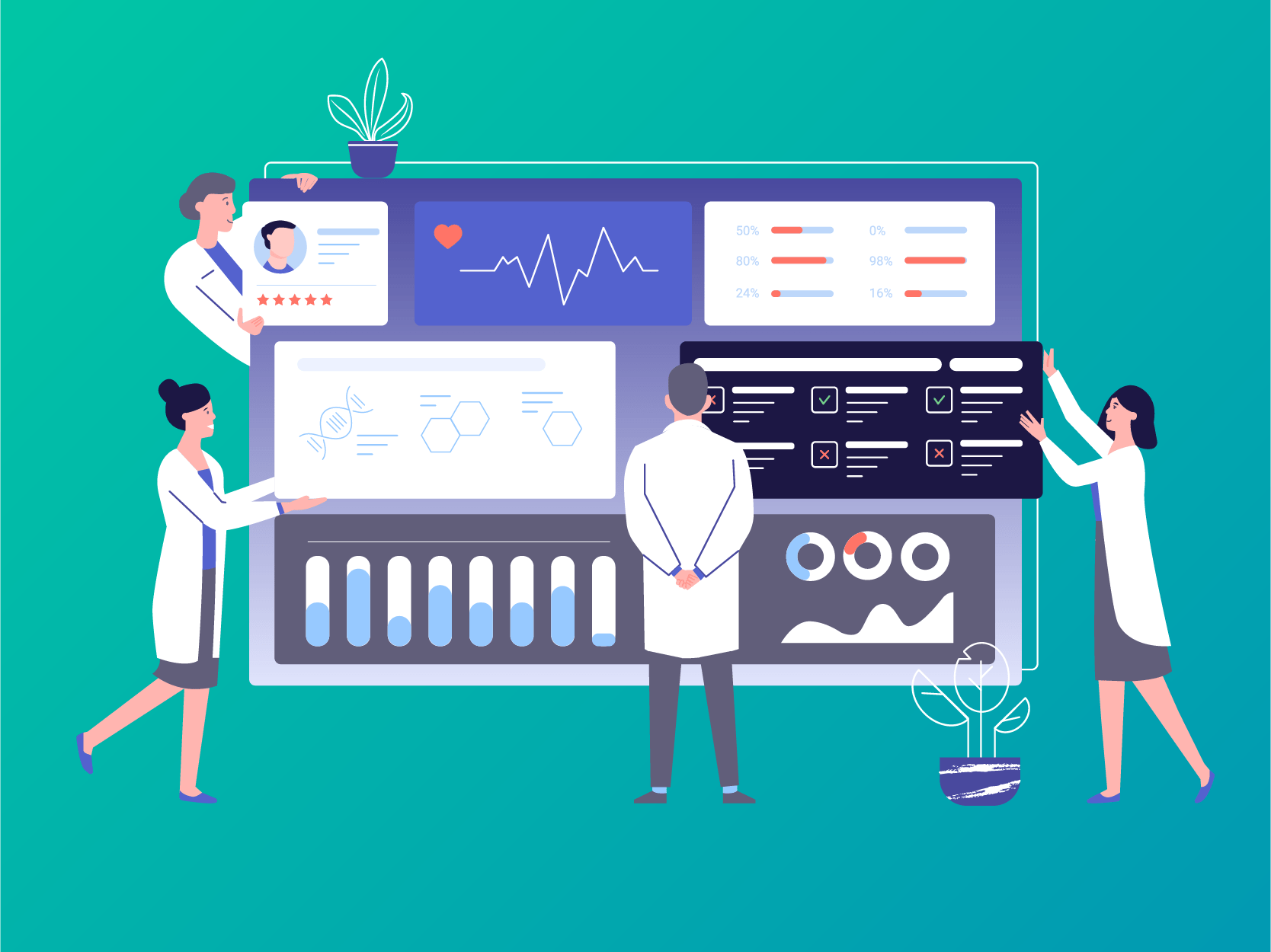How medical device manufacturers can create innovative online experiences that wow
Recently, Medico had the pleasure of exhibiting and presenting at the Birmingham Med-Tech Innovation conference.
If you were unable to join us at the conference and hear from our Digital Marketing Director, Louis Meletiou, then fear not. We’ve summarised his presentation for you in this blog post, highlighting the key points to take note of if you want to create amazing digital experiences for your audience.
Why are medical device manufacturers increasing their reliance on digital marketing?
Medical device marketing was once solely the remit of sales representatives who might spend days travelling and speaking to clinicians across the country. Yet their access has been steadily declining with just 54% of surveyed physicians reporting to have seen a representative in person in 2019, down from 67% the previous year. And physicians are increasingly confident to turn to the internet to answer questions. In fact, nearly half of physicians in one study said they never had a question for a sales representative that they couldn’t find the answer to online.
We also know that in today’s busy hospitals and clinics, healthcare professionals (HCPs) simply don’t have the time for in-depth discussions about devices and new technologies. Instead, they need to be able to find what they’re looking for quickly and easily online, so they can be in control of when and how they do product research.
In this blog post, we look at why medical device marketers need to improve their online presence, as well as how to do it.
What can medical device manufacturers learn from ecommerce?
Ecommerce has had years to finesse its sales techniques, and it’s come a long way since it first began all the way back in 1969. The trend shows no signs of slowing either, with sales in online stores expected to reach 22% of global retail sales by 2023, compared to 14.1% in 2019.
The medical device sector and even pharmaceuticals have tended to lag behind but they are slowly catching up. Here are some of the lessons that can be learnt from the world of ecommerce.
Understand your audience
HCPs are humans too, which means they likely spend some of their time online and on social networks like Facebook, LinkedIn, Instagram and Twitter. But which platforms will work best for your organisation, driving the best results and return on marketing investments?
The key is to have a solid understanding of exactly who your audience is. Building buyer personas can help identify the channels most likely to resonate with your audience. The knowledge you gain from creating buyer personas or buyer journeys for HCPs will also help you craft a winning content strategy.
According to a report by McKinsey, “Nearly 40% of pharma companies admit they do not understand these journeys well enough to map digital touchpoints and align them with their digital strategy”. By creating buyer personas and understanding your audience’s journey in more detail, you can tailor your digital campaigns to drive impactful results.

Provide valuable content
Content consumption doubled in 2020 according to Forbes, with people spending nearly seven hours online every day.
Valuable content that people actually want to consume can make or break a marketing campaign. Think about any online activity as transactional. The HCP visiting your site is giving up their time and possibly data (like an email address) in exchange for information. Make sure that information is presented as helpful, educational content which is worth sharing an email or phone number for. As mentioned in the point above, buyer personas are key to informing what type of content will resonate best. These research-based profiles should describe what your ideal customer looks like, their challenges and decision-making processes – all valuable information for informing your content marketing strategy.
As you may have heard marketers say before, content is king. Consistently high-quality content should be used throughout each stage of your customer’s journey. Awareness pieces can be used to highlight a specific issue or concern that clinicians may have. Educational content can be a great way to generate leads and serve as the entry point to your sales funnel for further lead nurturing and follow-up. Consideration pieces such as research, insights and case studies should be used to introduce your organisation as a possible solution.
Collect data effectively and efficiently
When it comes to digital marketing, data paves the way to success. Using data gathering tools like Google Analytics and CRM systems is essential for driving data-led decisions. By capturing and interpreting this data, medtech companies can tailor digital strategies to meet audience needs. Effective data and analytics mean the insight you capture on your audience and their behaviour enables you to reach HCPs with additional products or services, as well as the ability to nurture them further along their buyer journey.

What are the benefits of digital marketing for medical device manufacturers?
There are so many reasons why going digital makes sense for medtech companies – scaling up, the ability to test and adapt, reducing costs, increasing efficiency, and maximising return on investment is just the tip of the iceberg. Let’s dive a bit deeper.
Scale fast
Changing your business to an online-first approach gives you an incredible opportunity to scale up. You no longer have to worry about limits to your physical resources. Online platforms are available 24/7 and the 24-hour nature of online platforms means you can be available to anyone in any time zone.
Moving online also dramatically increases your reach. You can expand into new markets with low upfront costs, and often without having to send sales representatives on long and costly trips.
You’ll also be increasing the leverage of your sales representatives’ time. The data you receive will filter out viable and engaged audiences that you can pass on to sales reps, so they can have more meaningful conversations with clients. Nurturing existing leads, rather than pursuing unengaged users, increases the value of the time spent by expensive representatives.
Test, learn, adapt
A digital approach to medical device marketing gives you the opportunity to test, learn and optimise at scale. By testing messaging, channels and design, you can find out quickly what resonates with your target market.
A combination of qualitative and quantitative data can answer questions such as:
- Do HCPs in country A care about the same USPs as HCPs in country B?
- What are the primary health conditions clinicians are faced with in a particular region?
Using digital assets like surveys is also a vital form of low-cost intelligence gathering, and can be used in combination with the data you collect every day on platforms like Google Analytics.

Creating a frictionless user experience
Being online allows you to create a frictionless user experience (UX), from initial search through to purchase. And we can’t stress how frictionless this needs to be. Keep in mind that 83% of consumers say they are less likely to re-purchase from an online retailer after a negative experience with a website, shipping or delivery.
So how can you create great user experiences?
- Provide high-quality, informative content that matches their original search intent.
- Show them how a medical device or devices meet their patients’ needs.
- Anticipate the questions they might have and maintain a robust FAQ.
- Provide real-time information, including details about stock and delivery times.
Being transparent about your stock will help alleviate supply chain fears and can help a buyer make decisions based on when the product will arrive. This is particularly crucial for busy clinics where wait times increased during the pandemic. The pandemic also saw devastating shortages of certain medical devices, like ventilators, so HCPs are keen to avoid similar situations.
A frictionless online experience can also reduce the need for in-person demonstrations — something that is particularly vital in the post-pandemic world. Many healthcare professionals are continuing to reduce unnecessary in-person contact, and a wide variety of healthcare services have moved partially or fully online.
The bottom line is to reduce friction at every opportunity. By anticipating and meeting all of the user’s needs on one webpage, you’re saving them time — arguably the HCP’s most valuable asset.
Learn more
Want to check out the full slide deck? Grab the presentation here.
Ecommerce for medical devices is just the start. We are experts in healthcare digital marketing. Explore more here:
- Search engine optimisation (SEO)
- Conversion rate optimisation (CRO)
- Healthcare advertising regulations
Speak to us today to find out how we can help you create innovative, online experiences that wow.






